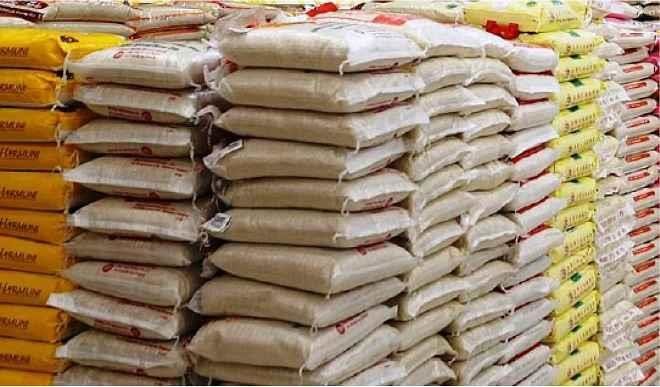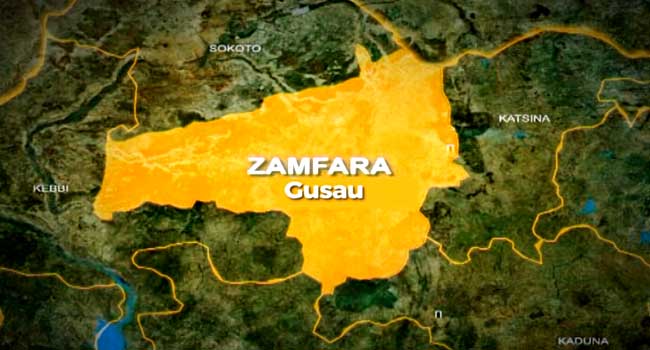
The Governor of Central Bank of Nigeria, Mr Godwin Emefiele, has said that “Figures available with the CBN show that from the period January 2012 to May 2015, the country spent over $2.41 billion on importation” of rice.
The Minister of Agriculture and Rural Development, Chief Audu Ogbeh, while speaking in Abuja at the 2016 Leadership Conference and Awards on the topic ‘The Rice Economy’ enumerated the many challenges confronting the nation’s rice economy since 1980, said, “the question I asked then (as a minister in 1982) was why not a taskforce for rice production? I was told I was too young to understand; that the solution was import first, then production later. This unusual and demeaning logic obviously reflected our ignorance about the dynamics of international trade.”

He stressed that, “the moment the importers discovered the swiftness of the Nigerian market, they ensured that local production was not only disrupted but they made sure it never took place. This is how rice kept coming and for a period of nearly 30 years, the import bill of rice stood at $6 million a day. And we kept paying because there was money from oil and gas until the music stopped.”
Ogbeh opined that the consequences of lack of discretion on the part of the nation on rice consumption have been a terrible drain on the economy, adding that “Nigerians are the second highest importers of rice in the world.”
The minister lamented that the resultant inability of the country to develop its own strategy of ensuring self-sufficiency in local staples, including rice has cost it a lot of money, stressing that “We are now lamenting but there is no time for lamentation because I think we have started solving the problem.”
With a growing population, the country’s demand for rice rose from less than a million metric tonnes in 1980 to 7 million metric tonnes of milled rice per annum.
Companies and individuals taking advantage of lack of government strong policy on rice went into importation and smuggling with no plan for backward integration.
But the former Minister of Agriculture and Rural Development, Dr. Akinwumi Adesina, while in office said rice production in the country generated about N400 billion to the Nigerian economy between 2011 and 2013.
Adesina told stakeholders in Abuja at the Second Nigeria Rice Investment Forum in 2014, that the country had attained 80 per cent self-sufficiency in paddy rice production and added 7 million metric tonnes of paddy rice to the domestic food supply in 2013.
Despite Akinwumi’s claims of attaining 80% self-sufficiency in rice, importation and smuggling thrived on the nation’s land and seaports and the imported product dominated the rice market.
It was gathered that warehouses were built at border towns to aid smuggling activities while corrupt Customs officials abetted the practice and local production was grounded.
While local farmers were producing they lacked the market to sell their produce because millers sought import quota and were busy importing and/or smuggling.
Rice farmers under the aegis of Rice Farmer Association of Nigeria (RIFAN) and rice millers quarreled over availability of the product with the former accusing the later of having more interest in importation of paddy than buying locally.
In November 2015, President Muhammadu Buhari launched the Anchor Borrowers’ Programme for rice. The programme, which is being managed by the CBN, is to help the nation achieve self-sufficiency in rice production.
Chief Audu Ogbeh, the Minister of Agriculture and Rural Development and the Central Bank of Nigeria Governor, Godwin Emefiele, who are key drivers of the programme, promised Nigeria that this year (2017), the country will attain self-sufficiency and begin to export rice.
That perhaps may not happen as the minister said recently in Abuja that 2018 is now the new target date to achieve self-sufficiency.
In November 2016, the Rice Processors Association of Nigeria, a body consisting of over 25 million indigenous rice farmers, petitioned President Muhammadu Buhari that there was massive smuggling of rice into the country.
They said documents at their disposal showed that shiploads of rice were being stored in neighbouring countries, ready to be smuggled into the country.
Mr. Abubakar Mohammed, the chairman of the processors and former Minister of Justice, Chief Michael Aondoakaa (SAN), the secretary, in a joint statement in Abuja, urged the federal government to check the practice otherwise the local rice industry would die and over N200 billion worth of investment in the sector would be destroyed.
Announcing a decision that did not go down well with local rice farmers and processors, the Comptroller-General of Customs, Col. Hameed Ali (rtd), in October 2016, ordered the immediate lifting of the ban on rice importation from the import restriction list and the re-introduction of import duty payment at land borders.
The argument was that “Over the years importation has been restricted to the seaports because border authorities found it difficult to effectively monitor and control importation of rice.
“When the decision to ban it (rice) was taken it was not an effective measure because smuggling of the product thrived with people using different means of conveyance.”
So what exactly has been the problem with the country’s rice industry despite huge interventions by various governments, and why is the target for self-sufficiency difficult to achieve despite resources committed to the rice project?
Experts believe we must look totally inwards: provide quality and improved seeds, fertiliser and set up good milling machines, encourage backward integration and shutdown the borders to incoming rice.









